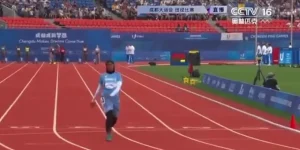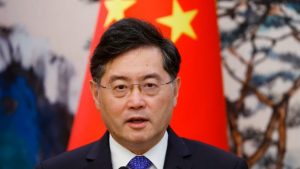A day after British regulator Ofcom revoked Chinese state broadcaster CGTN’s licence after it was found flouting UK law, China accused Britain of ‘ideological prejudice for rescinding their licence. The move means UK broadcast providers must stop offering the channel to British audiences or face an unlimited fine, news agency AFP reported.
Beijing hit out at the ruling on Friday, saying it was “based on ideological prejudice and political reasons.”
“China urges the UK to immediately cease political manipulation and correct its mistakes,” said foreign ministry spokesman Wang Wenbin, adding that China “reserves the right to make the necessary responses.”
Also Read | United Kingdom deports Chinese spies who posed as journalists
He said the news channel had played a role in “enhancing understanding and communication” between the two countries.
Ofcom said CGTN’s licence holder, Star China Media Ltd, had failed to show it had editorial oversight over the network and that a proposed transfer to another media group would still keep it tied to the Chinese Communist Party.
According to British law, broadcasters must not be controlled by political bodies.
“We have given CGTN significant time to come into compliance with the statutory rules. Those efforts have now been exhausted,” Ofcom said.
The regulator added that an investigation into alleged breaches by CGTN of impartiality, fairness and privacy requirements would be completed “shortly”.
Also Read | China’s CGTN loses licence, found flouting British law
CGTN opened its European headquarters in London in 2019, but the English-language satellite broadcaster has long faced criticism for parroting the Communist Party line in its global broadcasts.
CGTN blamed “the manipulation of far-right groups and anti-China forces” for the Ofcom ruling in a statement posted to the Twitter-like platform Weibo.
In the United States, CGTN is one of seven Chinese media outlets that have been designated as state-sponsored actors rather than as independent media.
Beijing routinely threatens retaliation against Western countries for acting against its media operations, which have grown in sophistication and reach through the years.







